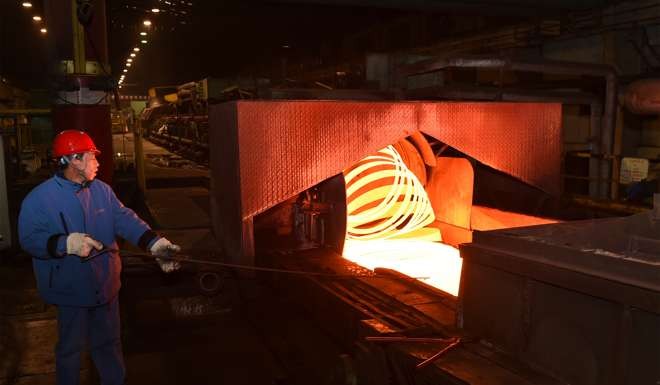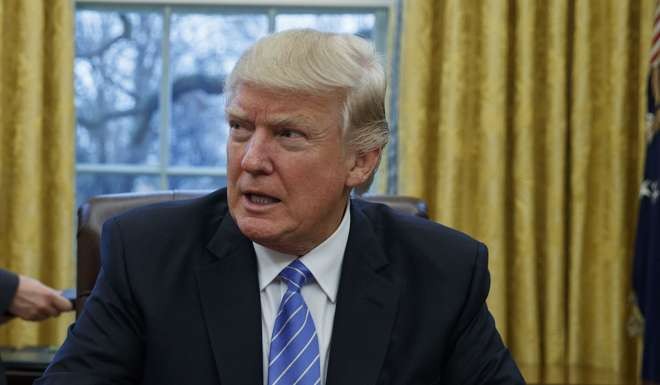
China upset at high US tariffs on steel imports
Punitive tariffs announced after conclusion of anti-dumping and anti-subsidy investigations

China has voiced discontent at high punitive tariffs announced by the United States on Chinese steel products in the latest trade conflict, as Beijing braces for increased confrontation with Washington over trade under the Donald Trump administration.
The US Commerce Department announced earlier this week it would impose punitive tariffs ranging from 63.86 per cent to 190.71 per cent on China’s stainless steel products after concluding anti-dumping and anti-subsidy probes.
“China is disappointed that the United States continued to launch high taxes on Chinese steel export products and calls into question the unfair way the US conducted its investigation,” said Wang Hejun, head of the trade remedy and investigation bureau of the Ministry of Commerce, on Saturday.
Wang said the US disregarded evidence submitted by Chinese enterprises in its anti-dumping probe, violating the rules of the World Trade Organisation, and also disregarded the cooperation of the Chinese government and companies in the anti-subsidy investigation.

“China’s [steel] industry is strongly discontented with the way the US conducted the investigation and its decision,” Wang said, adding that China would take the necessary steps to protect the rights of Chinese businesses.
China is disappointed that the United States continued to launch high taxes on Chinese steel export products and calls into question the unfair way the US conducted its investigation
The steel case came after the US imposed up to 52.5 per cent anti-dumping duties on Chinese large washing machine exports on January 30. The investigations started under the Barack Obama administration, but the protectionist stance of Trump’s administration indicates more confrontation ahead, observers said.
Trump threatened during his presidential campaign to label China a currency manipulator and impose up to 45 per cent duties on Chinese imports.
Senior Chinese officials and top leaders have warned there would be no winners in a trade war between the superpowers. Beijing is preparing to retaliate if Trump launches a trade war, including trade investigations of US products, the American Chamber of Commerce in China said in January.
“US-China trade conflicts will exacerbate and gradually evolve into a trade war,” said Jin Baisong, a former researcher with the Ministry of Commerce.

“Trump pledged to reverse the US trade deficit against China and attract manufacturing to flow onshore to create more jobs. The US will seek every possible chance to challenge China in trade issues,” he said.
For years, China’s steel products, along with other manufactured products in overcapacity sectors, have been at the centre of trade disputes as China’s trading partners such as the US and the European Union claimed China was dumping the products at prices below fair value, hurting local rivals.
Jin said the US still adopted the third-country standard in pricing to assess whether China’s price was fair, a measure which Beijing insists should have ceased after the 15th anniversary of China’s access into the World Trade Organisation, which was marked on December 11.
Wang said issues in the steel sector were rooted in sluggish demand and weak global economic recovery. He said trade protectionism would hurt not only exporting countries but also US consumers and downstream industries.